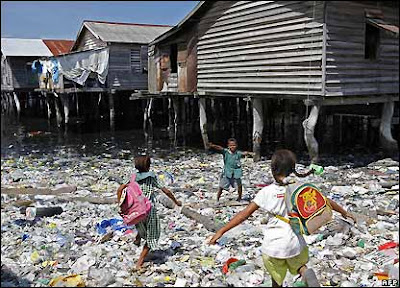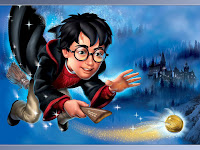
Lyla enters from the back, walking past nurses in scrubs and administrators in suits, their identification tags clipped to the bottom of their jackets. They sit on picnic tables scattered about the criss-cross of roadways used by off-duty ambulances and delivery trucks. There is the low buzz of a place that is always open, which quickly becomes background noise as Lyla enters the hospital.
She’s never liked hospitals, with their shiny floors and light-coloured walls. Sometimes you can be lulled into a sense of normalcy with doctors striding by, people in suits on official business; only to be pulled back by someone in a wheelchair, covered only by a gown, leaning against the armrest, with a dangling IV bag in tow.
Lyla finds the elevator and takes it to the sixth floor, just above the tree tops of the valley that surrounds the hospital. She walks quietly down the hallway, feeling somewhat like an intruder, ready to be stopped at any point and asked what her business here is. The most she gets is a raised head from the nurses’s station, eyes that don’t linger long enough to assess her motives.
Entering the room, Lyla smiles briefly at the couple at the first bed: the woman lies completely back, looking up toward the ceiling, unmoving. The man sits on a chair beside her, a magazine in his hands. The man smiles briefly back, but it is a smile full of warmth that spreads to his eyes and chin. Turning, she moves towards her grandmother’s bed, which is propped up, although her grandma’s eyes are closed.
Lyla stands for a moment, unsure of where to place herself, and her grandmother’s eyes open. They take a second to focus on Lyla, but when they do, a smile breaks across the old woman’s face.
“Hello, dear!” she says in her soft Dublin accent. “How are you?”
“I’m fine, Granny,” says Lyla, leaning in to kiss her grandmother on the cheek. “How are they treating you here?”
“Very well, very well,” says her grandmother, still beaming.
Lyla pulls up a chair next to the hospital bed and answers all the questions her grandmother can think of. As they talk, there are stirrings from across the room.
“Hello, Alice,” calls out Lyla’s grandmother from behind the half-drawn curtain that obscures her view of Alice.
“Hello, Eileen,” comes the response from the bed.
“My granddaughter’s come to visit me.” The man with the magazine is beaming at Lyla, perhaps providing the visual part to the conversation.
“Oh, lovely,” says Alice.
“This is Lyla,” says Lyla’s grandmother.
“Pleased to meet you. I’m Gerald,” The man rises and comes quickly over, hand extended in greeting. “That’s my wife, Alice over there.” He turns and nods toward the bed, still grasping Lyla’s hand.
“Nice to meet you,” calls Alice, head still unmoving on the pillow.
“It’s nice to meet you both,” says Lyla, releasing Gerald’s hand and craning her neck slightly to see Alice.
Gerald stands for a moment, just smiling, his eyes flitting from Lyla to the curtain, then back to Lyla. He turns to look at his wife, who still lies still, eyes looking up to the ceiling.
“Well, I’ll let you get back to your visit,” he says after a brief moment, “lovely to meet you.”
“And you,” smiles Lyla, watching him move back to his wife’s bed and sit back down in his chair. He picks up his magazine and begins to read it.
Lyla turns back to her grandmother who is reaching for a brush on her table tray.
“Lyla, would you be a love and just brush the back of my hair?” she asks.
“Sure!”
As Lyla brushes the thin grey hair, pressed against her head from hours against a pillow, she listens to the quiet murmurings from across the room.
“Do you want to hear an elephant joke?” asks Gerald, his voice slightly muted.
Lyla can barely hear Alice’s reply and can’t make out the components of the joke as her grandmother thanks her for the minor grooming. What she does make out is the eruption of laughter that comes from Alice when Gerald finishes: whole-hearted and from the belly. Lyla’s eyes dart across the room: she can see Alice’s body heaving, Gerald’s hand resting on her arm beneath the covers, his face lit up while watching hers.
Lyla and her grandmother lock eyes, their mouths breaking into smiles simultaneously.



 Lyla enters from the back, walking past nurses in scrubs and administrators in suits, their identification tags clipped to the bottom of their jackets. They sit on picnic tables scattered about the criss-cross of roadways used by off-duty ambulances and delivery trucks. There is the low buzz of a place that is always open, which quickly becomes background noise as Lyla enters the hospital.
Lyla enters from the back, walking past nurses in scrubs and administrators in suits, their identification tags clipped to the bottom of their jackets. They sit on picnic tables scattered about the criss-cross of roadways used by off-duty ambulances and delivery trucks. There is the low buzz of a place that is always open, which quickly becomes background noise as Lyla enters the hospital.
 Now that Harry Potter mania has died down (presumably because everyone has finished the last book and seen the latest movie), and I am on page 350 of the 600-odd pages of the penultimate book (I’m always behind in most areas of my life), perhaps now I can comment on the insanity.
Now that Harry Potter mania has died down (presumably because everyone has finished the last book and seen the latest movie), and I am on page 350 of the 600-odd pages of the penultimate book (I’m always behind in most areas of my life), perhaps now I can comment on the insanity.